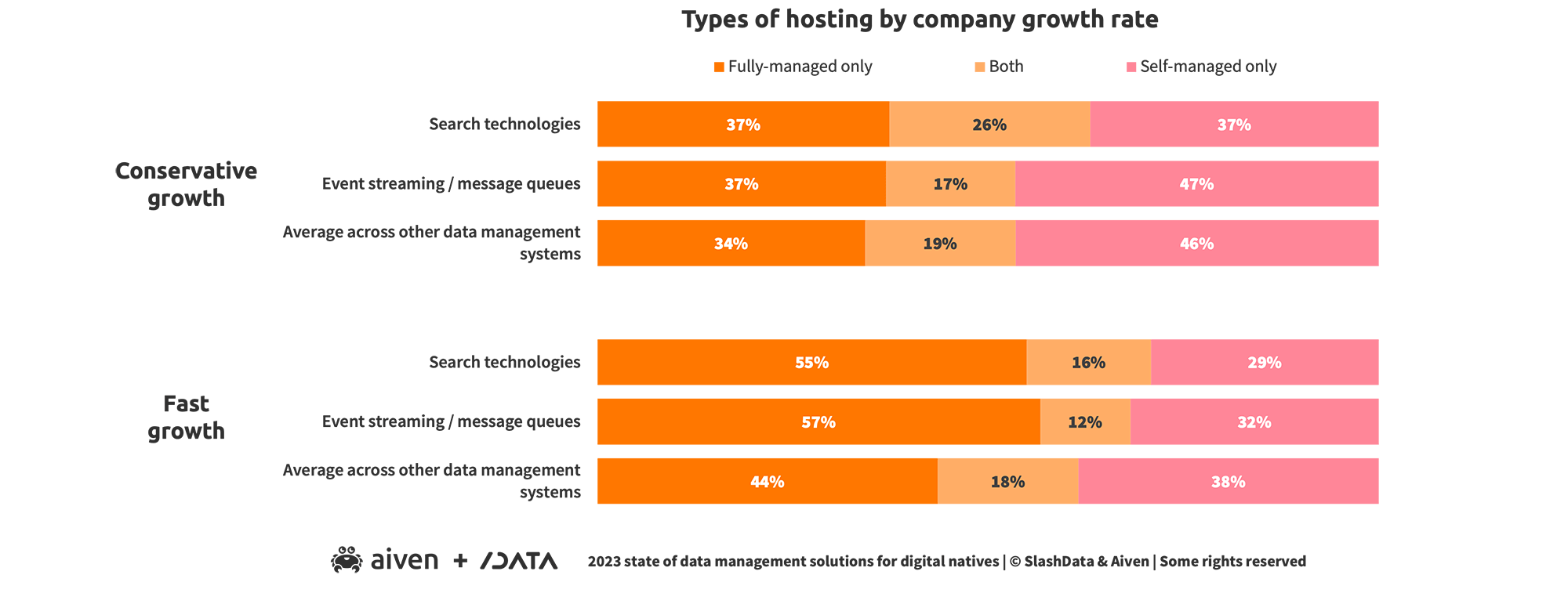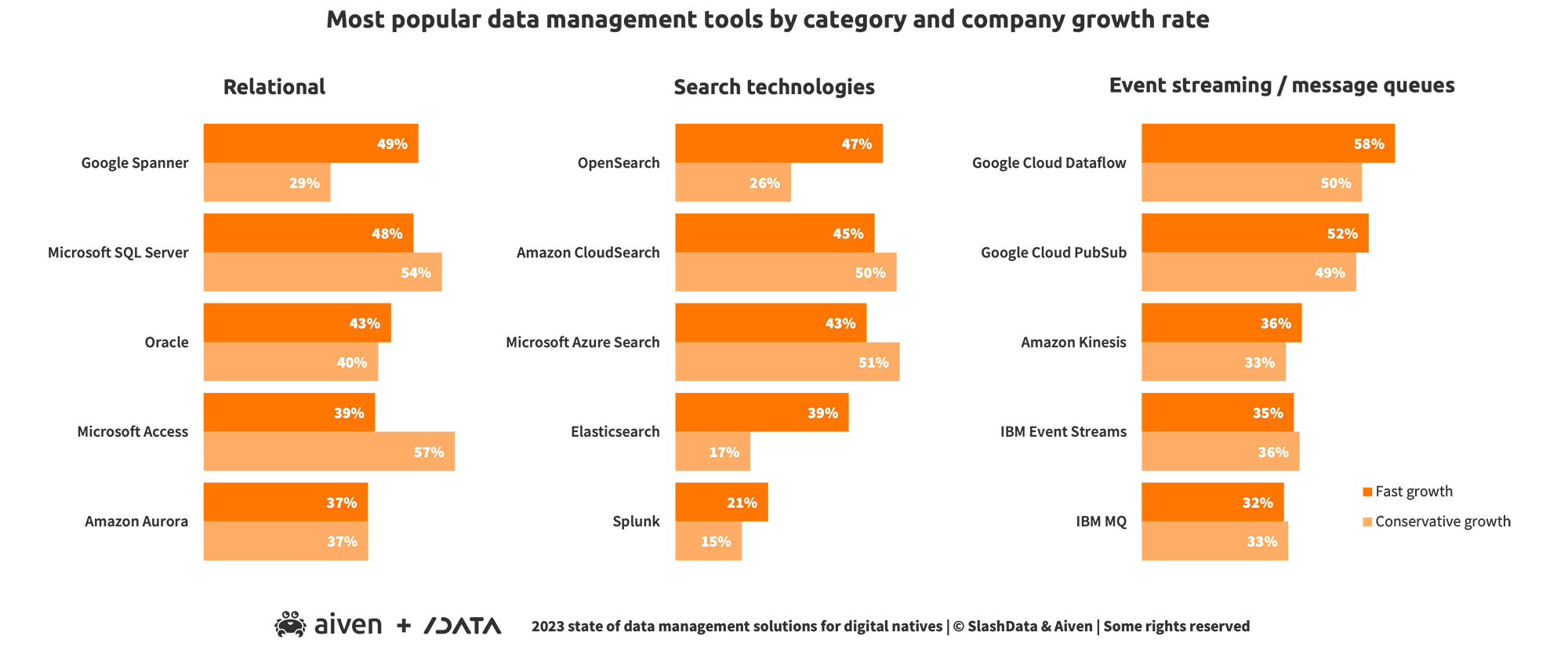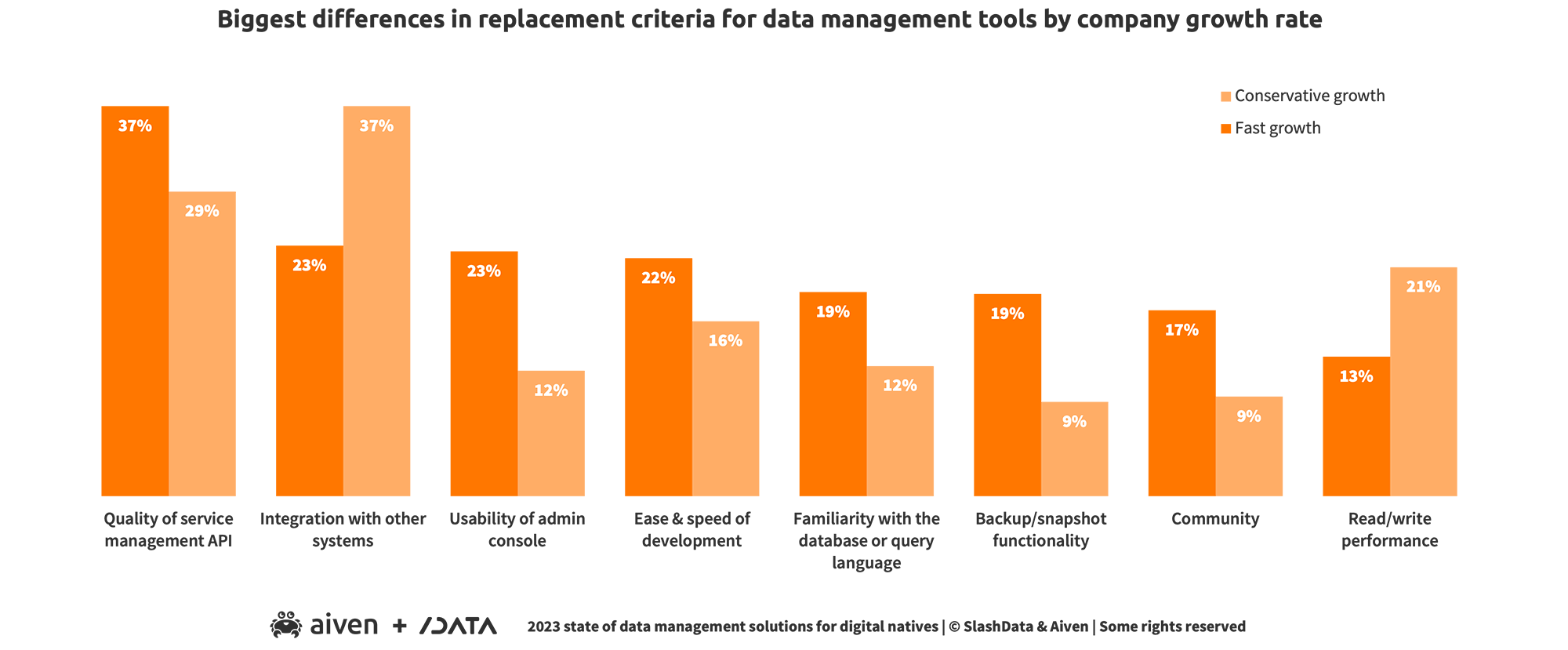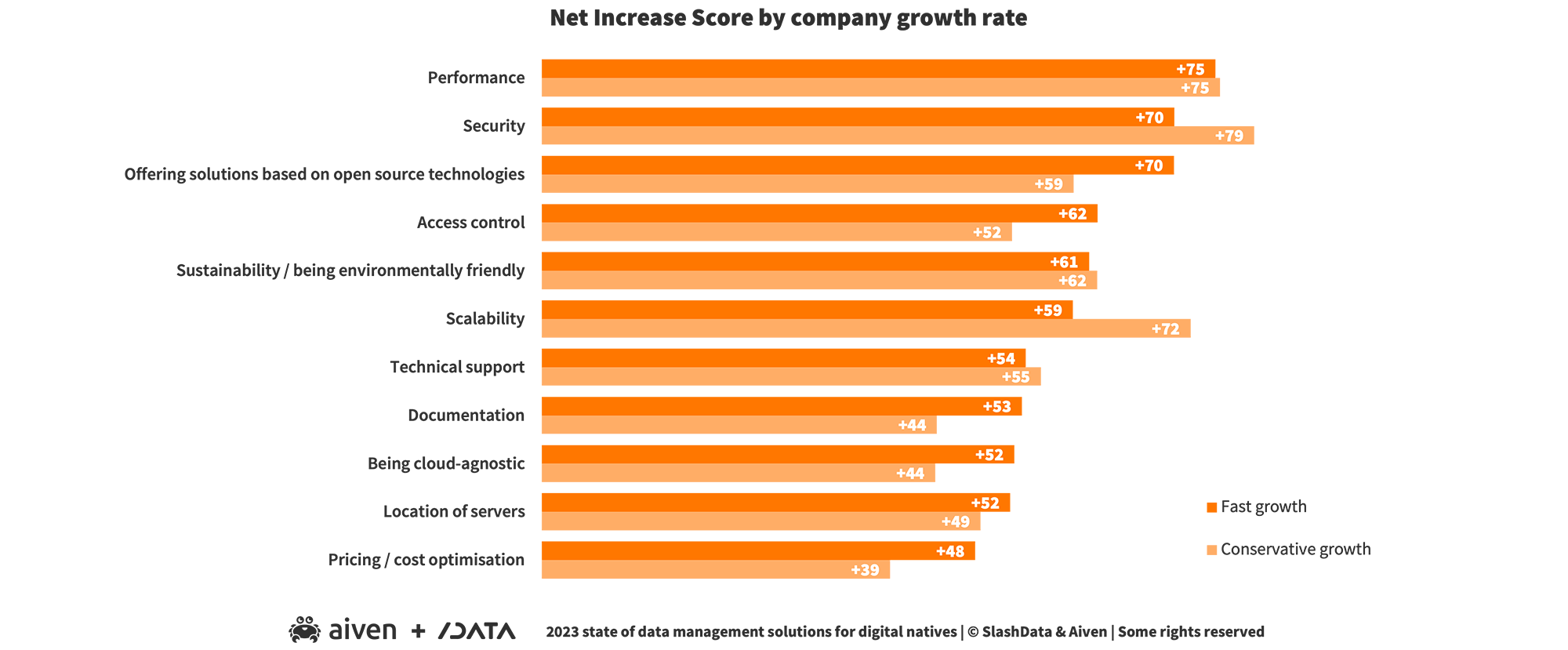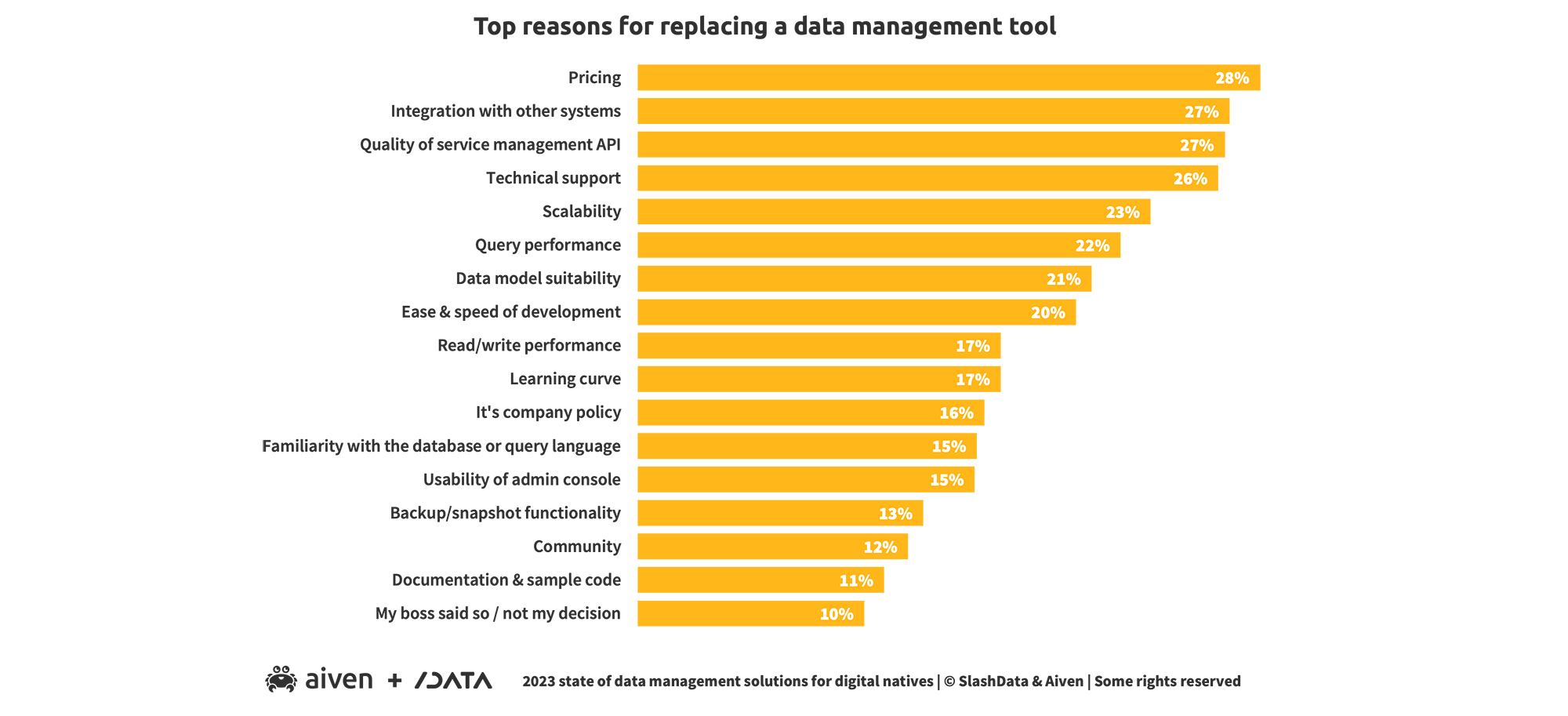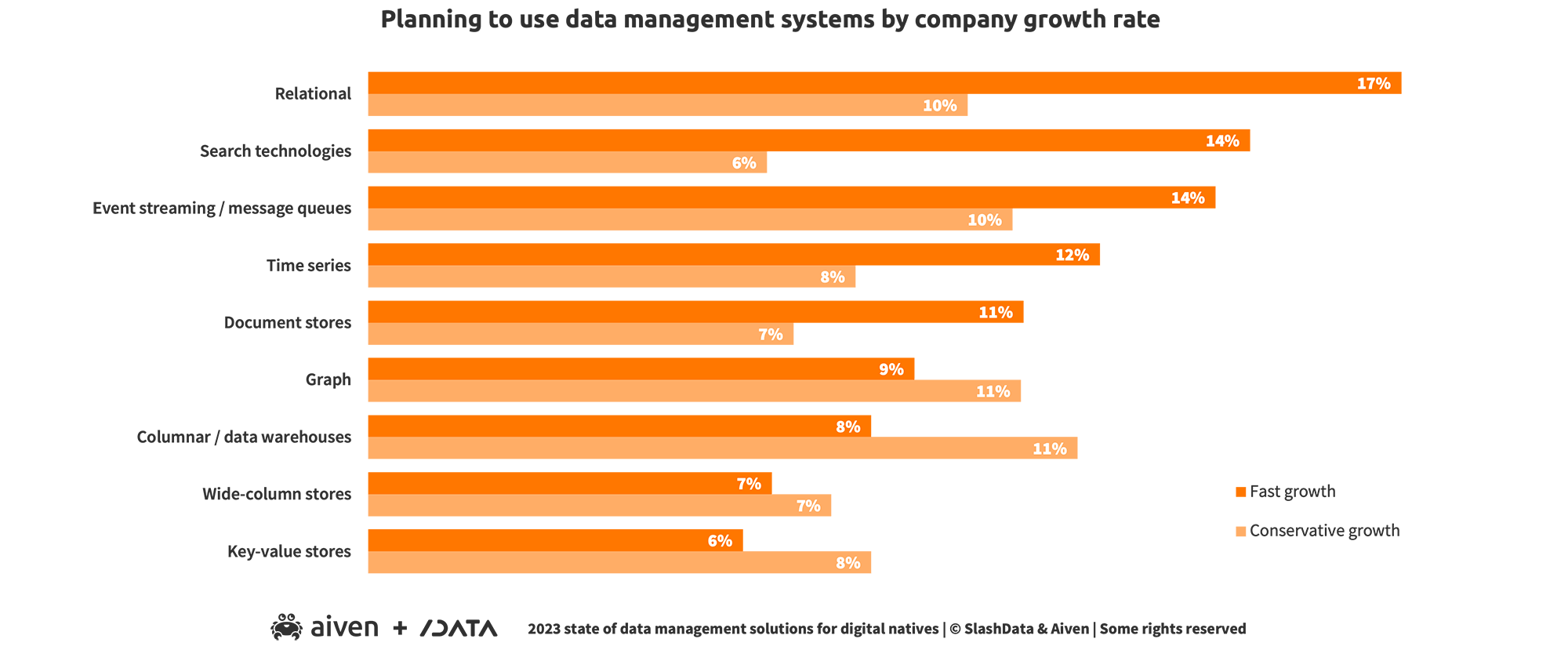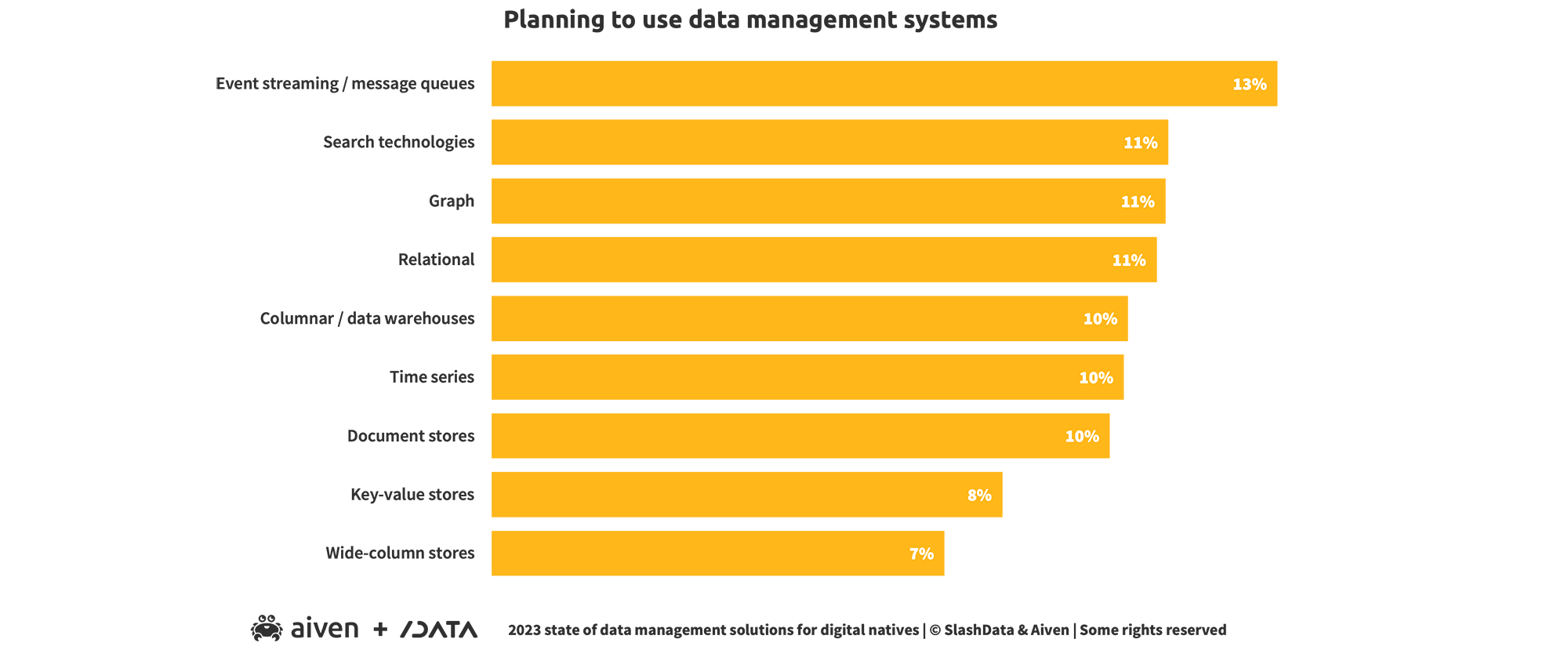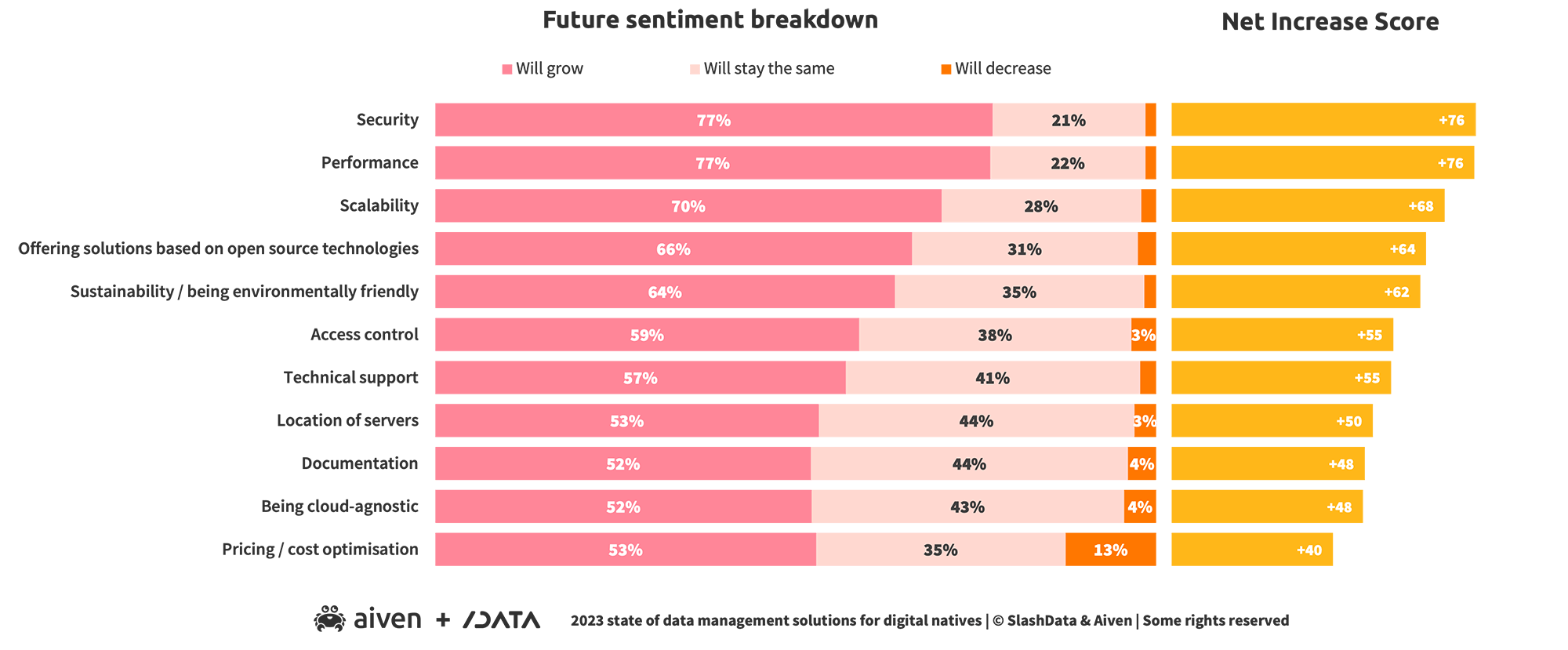2023 state of data management solutions for digital natives
How companies equip themselves to respond to change.
What are the emergent trends and best practices for a digital native company in this era of fast-changing data management tech?
In our report, we use fast growth to refer to the overall approach of swift innovation and response to change necessary for companies that are focused on increasing their personnel and tooling.
Below, we share the 8 key findings from the report for you to take in at a glance, and close with some final thoughts from Aiven’s experts. If your business is facing questions and considerations of data tech and best practices, you’ll find valuable insights here.
Download the full report
1
Faster growing companies prefer fully managed services
Companies that opt for a more conservative growth rate show a preference towards self-managed solutions. Faster growing companies are, on average, 16% more likely to use a fully-managed service. Spending less time on managing their database instances themselves allows companies to focus on other parts of their businesses that help them scale stably, at speed.
71% of tech leaders in businesses with a fast-growth philosophy opt to embrace fully managed services for search technology in some capacity, while only 29% choose to exclusively self manage.
2
Faster growing companies adopt open source search technology
Companies with fast growth rates are more likely to adopt open source search technology, with OpenSearch emerging as the most popular among them. They are highly focused on search technology and event streaming / message queue systems.
With adoption rates double that of their next closest competitors, Microsoft Azure Search and Amazon CloudSearch dominate the search engine rankings for companies following conservative growth patterns. However, these two commercial tools see high levels of competition from their open source alternatives among respondents working for companies with a fast-growth mindset.
3
Service availability and disaster recovery are important for a fast response
Moving fast and exploring new ideas comes hand in hand with an increased risk of things going wrong. 43% of tech leaders in faster-growing companies consider service availability and disaster recovery capabilities to be of critical importance when it comes to adopting a data management tool.
Only 27% of companies embracing a slower growth rate have mentioned this feature as a main reason for considering a replacement data management tool in the past, as they more risk averse.
4
Faster growing companies embrace open source data management technologies
Even today, companies with an eye to fast growth are more likely to adopt open source data management products than their conservative-growth counterparts–this is what the report tells us. Companies with a conservative growth approach, however, are more concerned with the scalability of such products.
This contrast in priorities also applies to future decisions these companies make. Our data suggests that faster growing companies are very likely to place an even higher value on open source technologies when selecting a DBaaS vendor in the future.
Want more info?
If you're facing any of these questions and concerns — and as an expert within a digital native company, you probably are — then it's time to dig into the data.
Download the full report here5
Price is the dominant reason for switching to an alternative solution
Data model suitability may come out on top when it comes to choosing a new data management tool, but when tech leaders pass a tool by–or decide to move on from the tool they’re using–it is often to do with price.
28% of respondents reported pricing as one of the main reasons for their decision to switch to a different product, while only 21% did so due to suitability issues. While a given product may be highly suitable and have good integrations with other systems, it may not be a feasible choice for those with limited budgets.
This is particularly the case for small businesses with up to 200 employees, 34% of whom mention pricing as one of their top deciding factors in data management solution questions. On the other hand, large enterprises care most about receiving high quality technical support.
6
Digital native companies are adopting new data management systems
Data infrastructure professionals at digital native companies use a large variety of data management system types simultaneously–six on average–to optimize their business operations. This is already the case today.
This trend is set to continue, with 56% of our report’s respondents looking to adopt at least one new data management system type in the near future. A deeper dive reveals that those who work for faster growing companies are 20% more likely to do so than those who work for companies with conservative growth rates.
7
Event streaming is on its way to becoming the 2nd most popular data management system type
Relational databases have taken a clear lead in adoption over other data management systems, and this is unlikely to change in the near future. However, with the continuous digitization of our everyday lives and increased reliance on artificial intelligence, the demand for streaming data has never been higher.
In turn, businesses are looking to implement processes that can take advantage of this shift. This is reflected in our data, as event streaming and message queues are on track to become the second most popular data management system type among digital native companies.
8
Sustainability’s rising importance in DBaaS vendor selection
Carbon negativity and sustainable technological advancements are coming. A lot of them are already here, but in the coming years they will become of even more critical importance. Our report’s findings bear this out: we all know this is important. And tech leaders are thinking about it more and more.
Digital native companies have proven more willing to prioritize the reduction of their environmental footprint over optimizing costs when selecting a DBaaS vendor in the future, to ensure that their actions help protect the environment.
Fireside chat
Best practices, decision drivers and the future of data management solutions
Watch our fireside chat for key insights on data management for digital natives. Explore sustainability, pricing, open source, and scaling. Presented by SlashData and Aiven, featuring OVHcloud and Developer Nation support.
So what does this mean? A crab’s-eye view on the report
Here at Aiven, we pride ourselves as a provider of fully managed open source data management solutions. When we commissioned the creation of this report, we came in with our own thoughts and assumptions on what the results would show, based on insights from discussions with our customers. Many of those assumptions were proven — but there were also surprises along the way.
The key take-away for us is that more than ever we need to continue educating the market on the benefits of open source.
We were also happy to confirm our experience that the usage of managed services by digital native companies in the data management space is increasing. And that makes sense. When you’re growing and changing fast, you don’t want to be bothered with low-value tasks. You want to focus on things that really move the needle.
If you want to discuss the ways Aiven can help you with your data infrastructure needs, feel free to book a chat with our experts!

